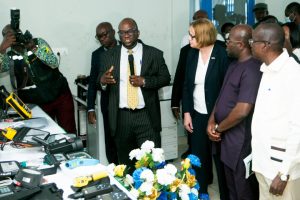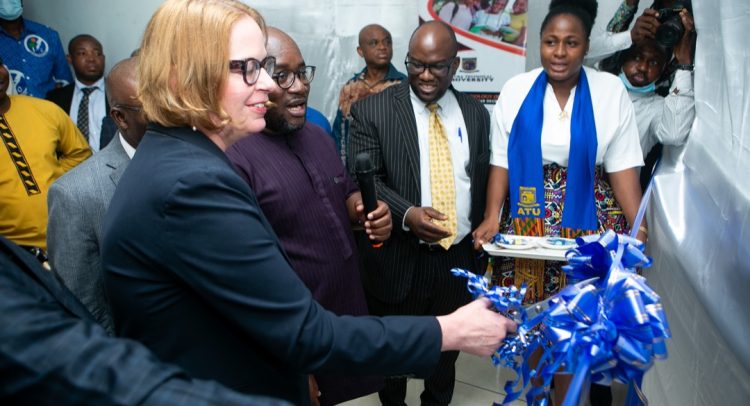The Millennium Development Authority (MiDA) in collaboration with the Energy Commission (EC) of Ghana, has established Sustainable Energy Service Centres (SESCs) in three tertiary Institutions in Ghana.
The Centres are to train and certify professionals who will assist organizations to adopt and implement cost-effective energy-saving measures in their operations.
The three SESCs located at Accra Technical University (ATU), the Kwame Nkrumah University of Science and Technology (KNUST), and the University of Energy and Natural Resources (UENR) are the first of their kind in the country with the potential to serve entities across the West African Sub-region.
Chief Executive Officer of the Millennium Development Authority, (MiDA), Martin Eson Benjamin, the an address said the project funded by the United States Government through the Millennium Challenge Corporation is valued at $284,928 including Energy Audit Instruments, office, and IT Equipment and three vehicles for all three centers.

Martin Eso Benjamin, Nicoe Chulick, Andrew Mercer, Kofi Agyarko and other dignitaries inspecting the Sustainable Energy Service Centres (SESCs) at Accra Technical University campus.
He said SESCs form part of the Ghana Power Compact’s Energy Efficiency and Demand Side Management (EEDSM) Project and are part of the innovative approaches to ensure the efficient use and conservation of power, which have the potential to reach out and serve entities across the country and the West African Sub-region.
“Energy matters for poverty reduction and sustainable development; It matters for economic growth and for combating climate change and adopting best practices in energy efficiency will create energy savings at the consumer and national level, and deliver these climate change benefits through avoided Climate Hazard Group (CHG) emissions in avoided electricity consumption,” he revealed.
Adding that MiDA and its partners have put on the Energy Market, three Institutions willing to collaborate with the Energy Commission to put Ghana on the pedestal; as far as ensuring the efficient use of power is concerned.
“It is MiDA’s prayer that these Centres will be well-patronized by all and that the Institutions will soon become household names among our small, medium, and large industries in Ghana.”
Deputy Chief of Missions, Nicole Chulick said the MCC Ghana Power Compact invested $25 million to advance energy efficiency programs to reduce electricity demand, conserve today’s energy resources, and prepare Ghana to address the challenges of a changing global climate.
“We are facing a climate crisis, so we need to take every step possible to mitigate its effects, including conserving energy and promoting efficient energy consumption by building out Ghana’s energy auditing capacity through projects like this.
Adding that Energy auditing is a growing niche industry where students and early professionals in science, technology, and engineering fields of study can forge a career path.
The deputy chief of missions maintained that these new Sustainable Energy Service Centers plan to provide the technical training needed for future energy auditors.
The Deputy Minister Of Energy, Andrew Mercer said these SESCs has the potential to provide a vital service across the West African sub-region.
“This is indeed a highly commendable project because energy conservation is a crucial subject in our time.”
Director, Renewable Energy at the Energy Commission, Kofi Agyarko, said with the same collaboration, Ghana has been able to develop 21 standards for electrical appliances and renewable energy projects.
“A regulation is in parliament and when passed, Ghana will be on top of Africa in terms of renewable energy,” he said.
Adding that the SESCs have business modules as well and students who pass out will not only have the certificate but the professional skills to start their businesses.
“Currently what needs to be done is the market. Introduce a policy that would make energy audits in public institutions mandatory so they can be sustained.
He cautioned the school heads not to run this programme like an academic development and guard against the independence of this project as a lioness.
By Linda Tenyah-Ayettey


